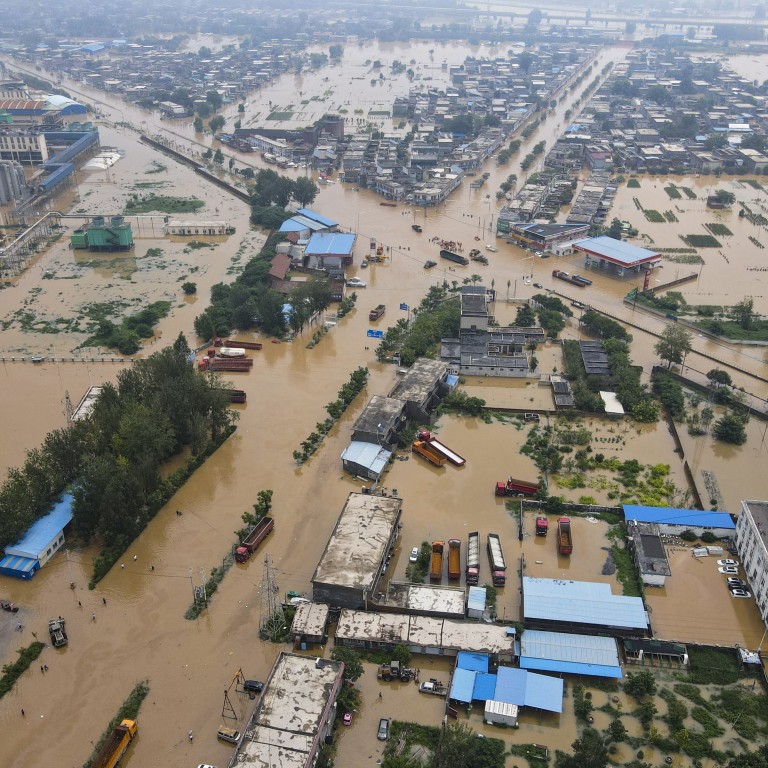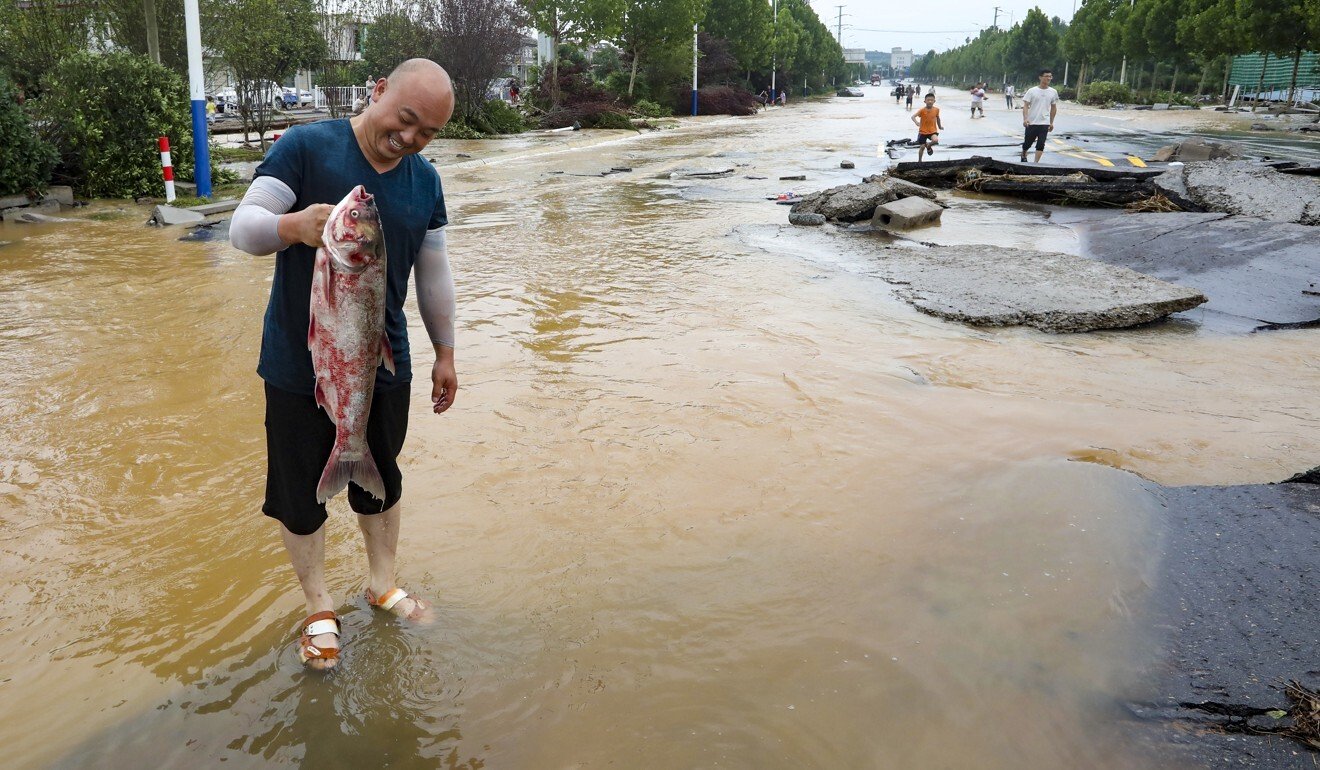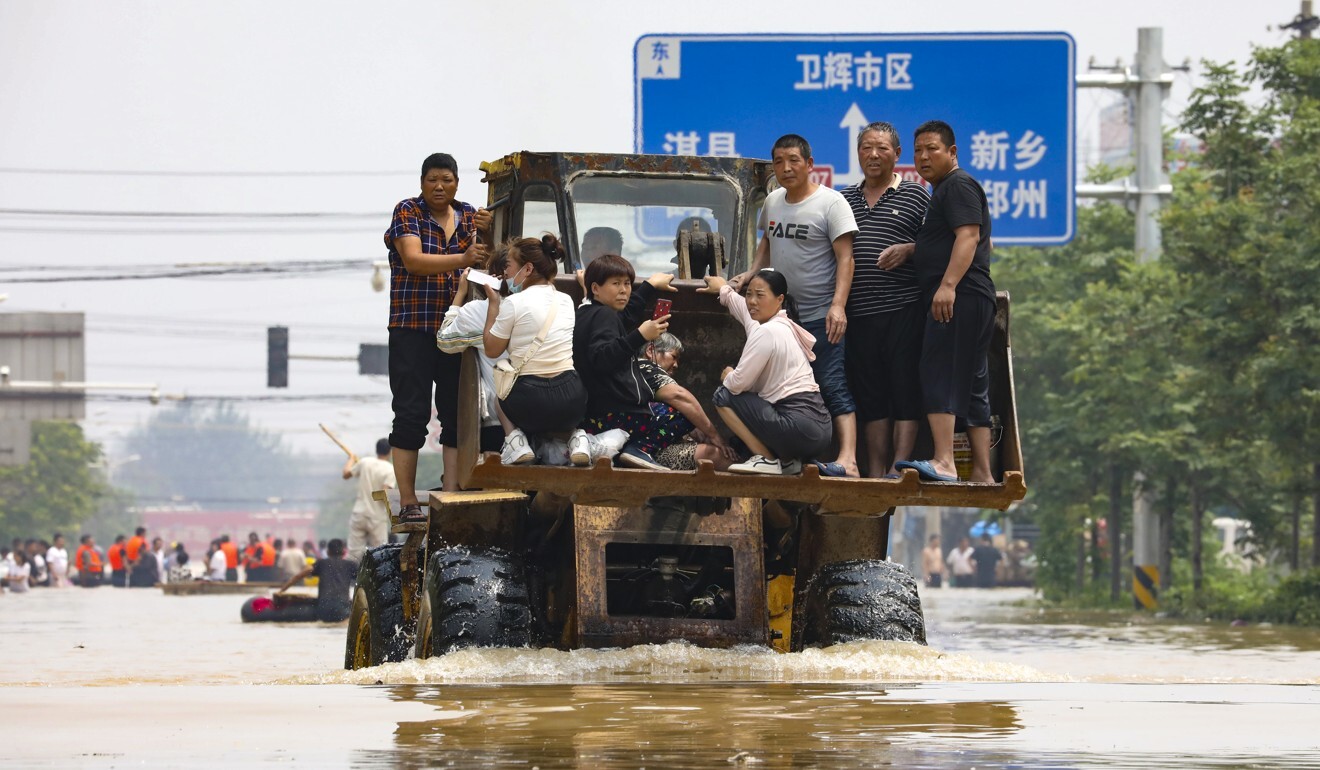
China floods: the struggle to rescue desperate, stranded villagers
- Efforts to save residents of Xiayuan, just north of Xinxiang in central China and almost cut off from the outside world, are under way
- Just getting to the region from Beijing is an ordeal, as roads and railways have been flooded and even airports have been disrupted
Zhang Wen was sitting on the roof of his house, holding his two children. The waters had engulfed the whole village. He decided to swim out.

02:13
Flood-hit residents of China’s Henan province rescued after being trapped for three days
When photographer Simon Song and I arrived at the scene on Friday, Zhang had just made it out, wearing only his trousers. He grabbed instant noodles brought by a relative who came to help and began eating by the road, the first meal he had consumed in two days.
“I want to find a kayak and go back home to pick up my family,” he said.
The only roads to Zhang’s village had been submerged in floodwaters that went above his head. The dozens of people rescued by a team of firefighters that had just reached the scene – and others, like Zhang, who had been able to get out themselves – were still in a panic.
Because of limited resources for the rescue, trucks and kayaks began to carry children and the elderly out first, leaving behind thousands of exhausted villagers.
China floods: Zhengzhou mops up but heavy rain continues to fall in other parts of Henan
As three children and one disabled woman in her 90s were placed in a van, one of the children asked to borrow my cellphone to call her mother, who she said was lost in the rain. But the mother’s phone could not be reached.
Scenes like this one on the north side of Xinxiang played out in multiple locations on Friday after a historic downpour this week. At least seven reservoirs overflowed, and waters flooded out of the irrigation canal to the Wei River, submerging villages downstream.
Just getting to Xinxiang was hard: the disaster had caused widespread disruption, flooding roads and suspending dozens of railways and flights.

Usually the journey to Xinxiang takes three hours by bullet train. On Thursday morning, the train from Beijing stopped at Handan, a city in the south of Hebei province about 340km (211 miles) away from the nation’s capital. We were told that several trains ahead were in a similar situation due to the rainstorm and flooding in Henan.
“I really don’t know what to do,” Li said. He had been on a train from Beijing to the city of Hebi, a distance of about 550km and just 70km short of Xinxiang, for more than 15 hours. He had then been forced to sleep at the Beijing station on Wednesday night after the train was turned around because of the floods.
The cost of a hotel, Li said, was “too expensive for me”, and he could not afford the 65-yuan (US$10) meal on the train, even though he hadn’t eaten for the whole day.
Typhoon In-fa set to bring more heavy rains to China days after Henan floods
Some passengers decided to get off from Handan after the train stopped for nearly two hours, some planned to change to other trains and some just lost their patience. My colleague and I, in a rush to report from the disaster, hired a car to head to our destination.
The waters had flooded the entrance of the highway to Xinxiang, and roads to the city were disrupted. But with the help of a local NGO, we managed to arrive at the centre of the disaster, a mountainous area of Xinxiang, late on Thursday night.
Along the highways from Handan into Henan province, factories, farmlands and villages were submerged, with waters in some places reaching the tops of cars.

Volunteers and NGOs nationwide have rushed to the disaster to help. We saw vans carrying supplies from Beijing, and dozens of cars flew banners saying “supporting Henan”. On Chinese social media, people are organising on their own, collecting information, calling for help and donating supplies and money.
A Zhengzhou resident surnamed Shi had donated a power generator to the Zhengzhou Fuwaihua central hospital, which after the heavy rains had become an “isolated island” with thousands of patients; the lack of electricity had the hospital down.
“My generator was picked by a volunteer and ferried to the hospital by a kayak,” Shi said.

